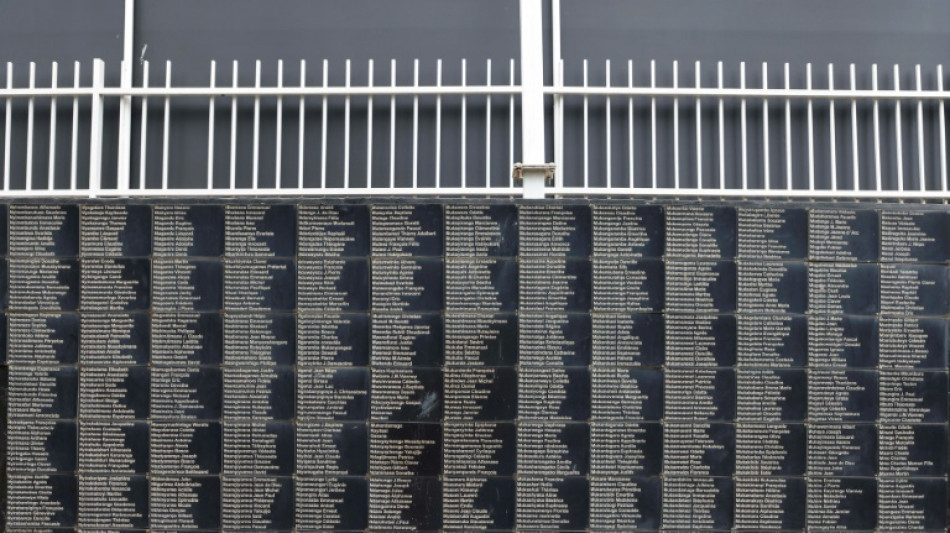

Most wanted Rwanda genocide fugitive 'died in 2006'
The last major fugitive wanted for his role in the 1994 Rwandan genocide, Protais Mpiranya, died in Zimbabwe in 2006, UN prosecutors probing the case said on Thursday.
Charged with genocide, war crimes and crimes against humanity, Mpiranya commanded Rwanda's presidential guard, a feared outfit accused of targeted assassinations during the 100-day massacre of Tutsis and moderate Hutus.
Prosecutors had spent more than two decades hunting him following his indictment by the International Criminal Tribunal for Rwanda in 2000, but in fact he had died of tuberculosis nearly 16 years ago.
"Following a challenging and intensive investigation, the OTP (office of the prosecutor) has determined that Mpiranya died on October 5, 2006, in Harare, Zimbabwe," the Mechanism for International Criminal Tribunals announced in The Hague.
It said Mpiranya was the "last of the major fugitives indicted by the International Criminal Tribunal for Rwanda (ICTR) and alleged to have been a senior leader of the 1994 Genocide against the Tutsi in Rwanda".
He was the key remaining wanted figure following the arrest of Felicien Kabuga in France two years ago.
"There are now only five outstanding fugitives" wanted by the UN tribunal, based in The Hague and Arusha, it said.
The tribunal's chief prosecutor Serge Brammertz hailed the news.
"Accounting for the last of the major... fugitives, Protais Mpiranya, is an important step forward in our continued efforts to achieve justice for the victims of the 1994 genocide against the Tutsi," Brammertz said.
- 'Deliberately concealed' -
Mpiranya was allegedly among those who ordered the murder of then prime minister Agathe Uwilingiyimana, 10 Belgian soldiers protecting her, and several other leading politicians and their families on April 7, 1994, in the early hours of the genocide.
After an indictment was issued against him, Mpiranya fled to Zimbabwe in late 2002, where he lived until his death in 2006, the tribunal said.
"Mpiranya's presence in Zimbabwe, and later the fact of his death, were deliberately concealed by the concerted efforts of his family and associates, including up to the present," the MICT said, adding it would ask judges to close the case.
Mpiranya fled into the neighbouring Democratic Republic of Congo, then called Zaire, in mid-1994 after the genocide, prosecutors said.
He then moved to Cameroon and two years later returned to DRCongo.
After fighting as a high-ranking Hutu rebel commander alongside Zimbabwean forces during the Second Congo War, which broke out in 1998, Mpiranya slipped into Zimbabwe in 2002 when a peace accord was signed in South Africa.
"Fearing capture as one of the most prominent ICTR fugitives, Mpiranya fled to Zimbabwe... where officials facilitated his entry," prosecutors said.
There he was joined by his wife and daughters, who later left for Britain.
- 'Anxiety and fear' -
"For four years, Mpiranya was able to avoid arrest and find some refuge in Zimbabwe, where he lived in a reasonably affluent area of Harare," prosecutors said.
Over the years however, his status as an international fugitive "had a significant impact". His movements were severely limited and he was increasingly forced to rely on a small network of his most trusted associates.
"The final years of his life were marked by anxiety and fear that his location would be discovered and that he would be tried for his crimes," prosecutors said.
Mpiranya died on October 5, 2006, in Harare's West End Hospital of pulmonary tuberculosis. He was using the alias of Ndume Sambao, they said.
Mpiranya was "subsequently buried in a cemetery outside of Harare" under his alias in a ceremony attended only by family and associates.
His family and associates had since "gone through great lengths to conceal his death and place of burial", giving false statements to investigators and coaching others to lie if questioned, they said.
"These efforts -- which continue to the present -- obstructed investigations and prevented identification of Mpiranya’s remains until earlier this year," they said.
An estimated 800,000 Tutsis and moderate Hutus perished in 100 days of slaughter in 1994 in which Hutu militiamen massacred Tutsis taking cover in churches and schools.
I.Barone--IM




